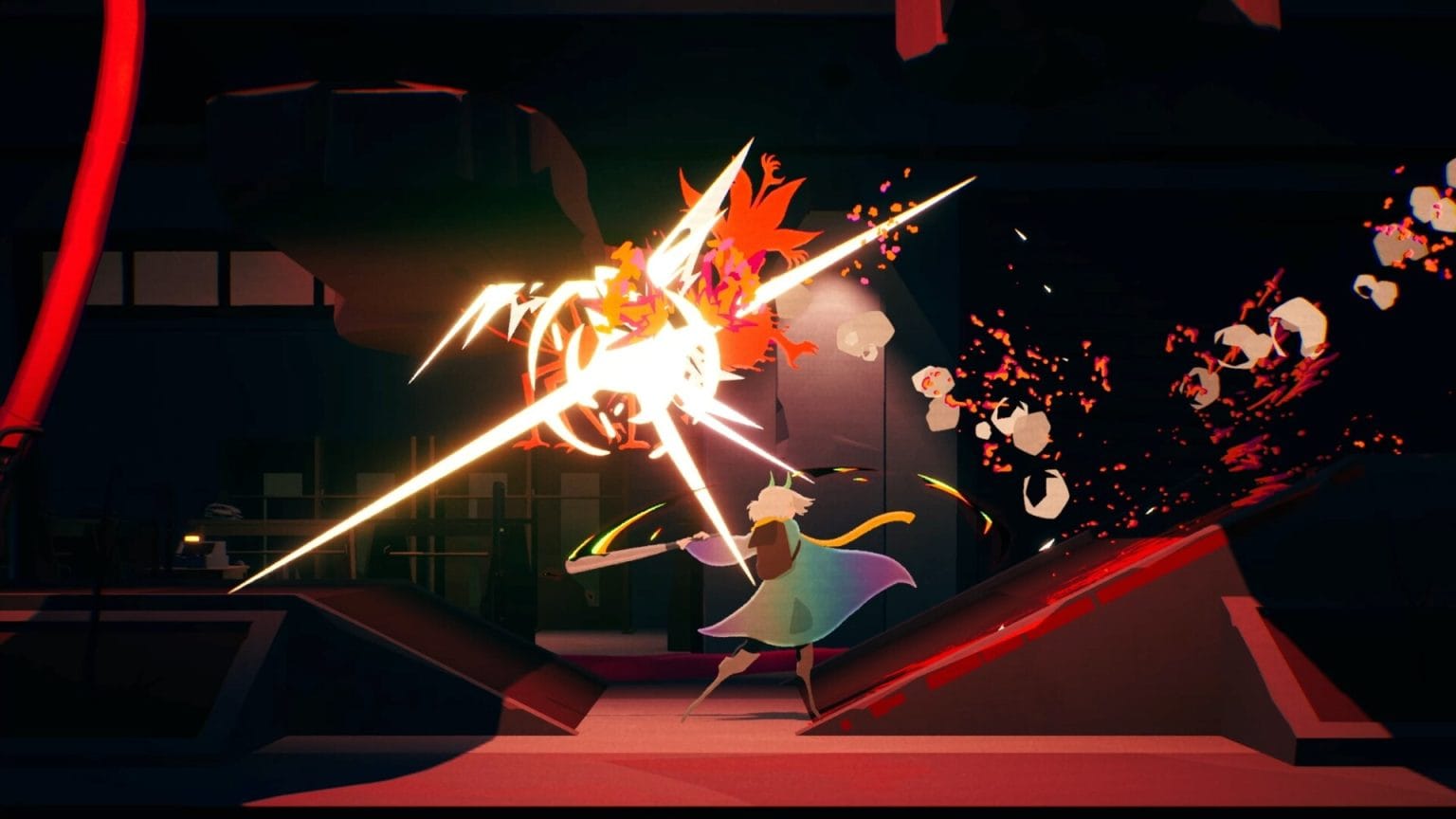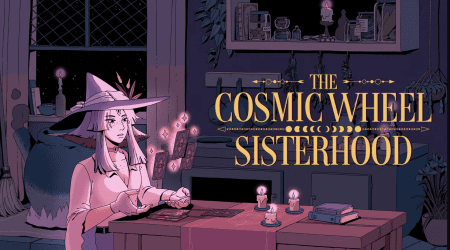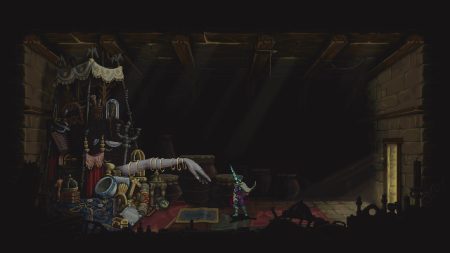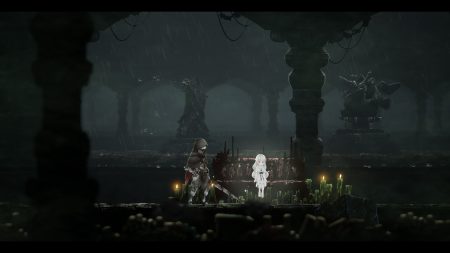Heart Machine’s Possessor(s) hit me harder than I expected. The studio behind Hyper Light Drifter and Solar Ash has had a rough year, both creatively and behind the scenes. So when I saw a new 2D metroidvania from the team — after Hyper Light Breaker’s bumpy early access run — I wasn’t sure what to expect.
What I found was haunting, heartfelt, and often frustrating: a game about grief, adaptation, revenge, and finding empathy in a dispassionate world. It’s a story about shared trauma and personal growth, wrapped in a world that’s as gorgeous as it is broken.
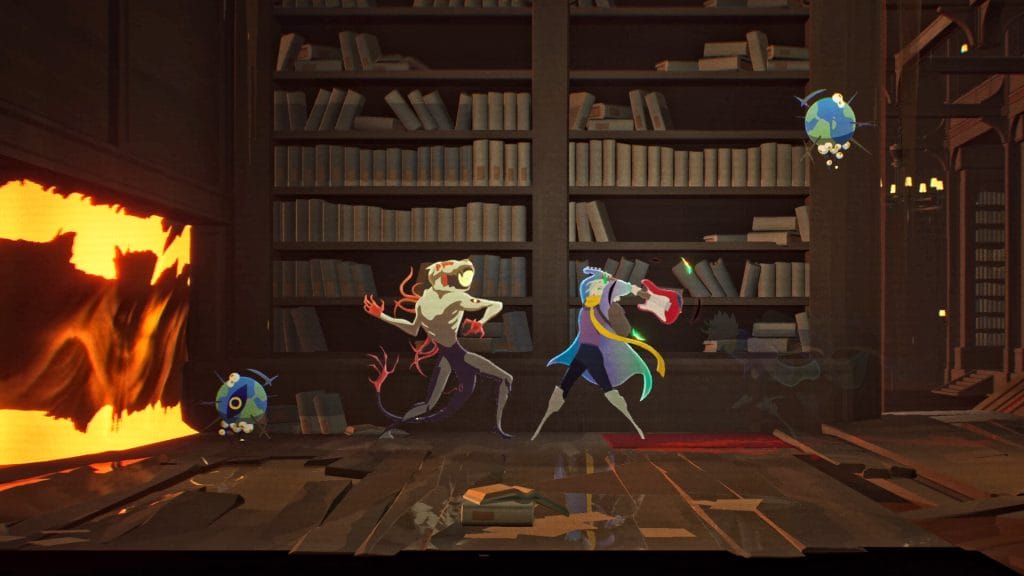
Chaos, Codependency, and Capitalism
Set in the once-bustling sprawl of Sanzu City, Possessor(s) opens with chaos: a massive explosion, flashes of demonic creatures devouring scientists, and the panicked flight of a student named Luca after she helplessly watches her best friend, Kaz, get brutally killed by a shadowed, horned figure. Soon after, Luca herself is mauled.
As Luca lies on the ground, the lower half of her body eviscerated, she meets a wounded demon named Rhem. The two form a pact, and Luca’s life ends and begins anew. It’s a grim, cinematic beginning that establishes both the tone and the stakes of Possessor(s). Luca’s city is gone, her family’s missing, and the world is crawling with monsters.
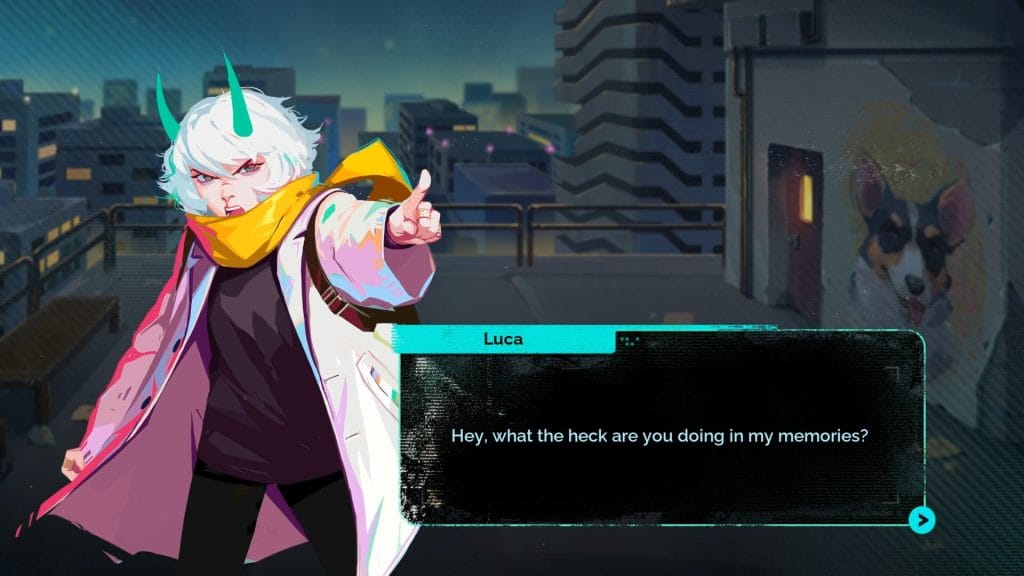
It’s an arresting premise. Rhem wants to go home; Luca wants to find her family. They need each other to survive. The heart of Possessor(s) lies in this volatile bond. Luca and Rhem argue, tease, and mourn together, each carrying their own ghosts.
Despite all the horror and ruin, Possessor(s) is also a coming-of-age story, told through Luca’s flashbacks. Luca is passionate and angsty; Rhem, older and world-weary, serves as a reluctant mentor — sometimes cruel, sometimes kind, always guarded. Their connection grows through small moments: quiet chats at demonic campfires, shared memories, half-hearted apologies into something genuine and tender.
Possessor(s) is Heart Machine’s strongest storytelling yet.
The pair don’t simply learn to survive together; they learn what it means to share a body, a mind, and, eventually, a purpose. Their literal codependency gives the game its emotional weight. It’s Heart Machine’s strongest storytelling yet.
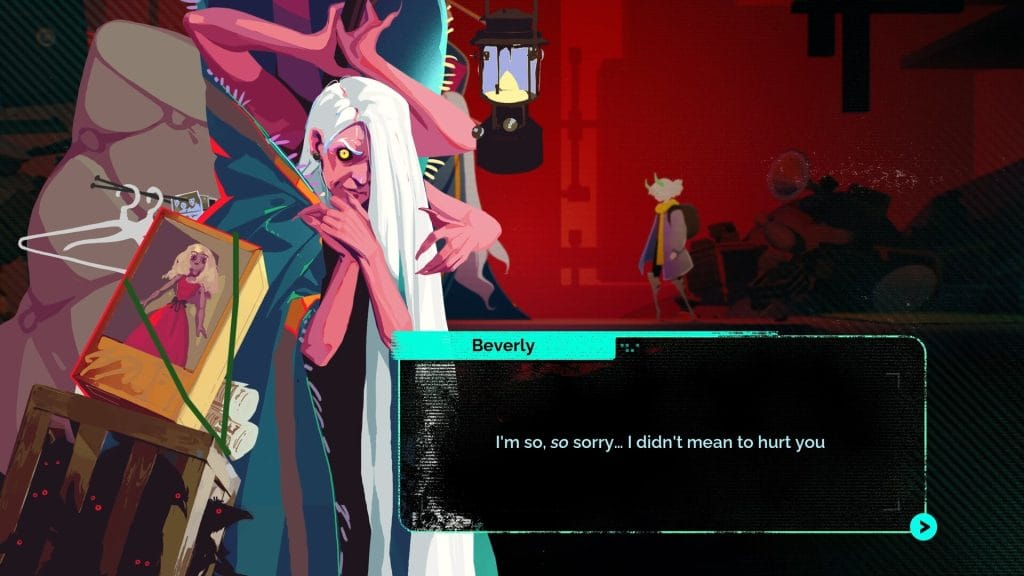
A Painful Reflection
This emotional arc unfolds against corporate rot. Agradyne Labs, the megacorp that triggered the catastrophe, was experimenting with demons long before the city fell, harvesting “Chroma” — demon essence — as fuel.
Sanzu City, once bright and bustling, is now a watercolor ruin. Every shattered skyscraper and weed-choked park is painted in luminous shades of pink, green, and red, creating an atmosphere that feels simultaneously alive and haunted. Heart Machine’s hand-drawn style returns in full force here, merging hand-drawn 2D characters with painterly 3D backdrops.
Possessor(s)’ world is crawling with “failed possessions” — demons that couldn’t properly inhabit their hosts. Needing a physical form to survive in this world, they latched onto whatever was nearby: everyday items like traffic cones, lamps, vases, vending machines, and cameras.
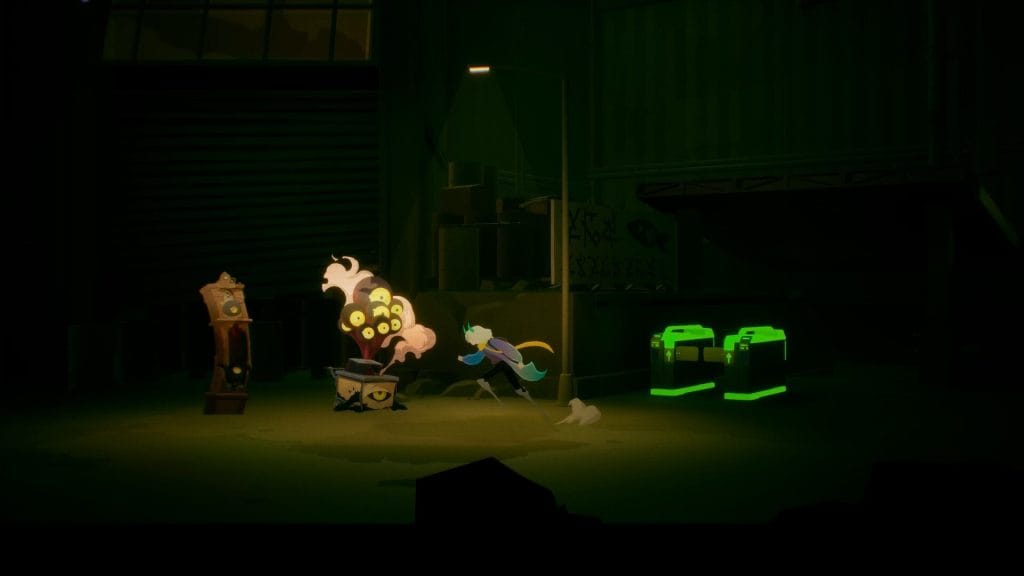
The result is grotesque and strangely pitiful — bat-winged desk lamps and shuffling cyclopean vases that lurch toward you with tortured purpose. Each encounter feels tragic, a reminder that even monsters can be victims of circumstance.
Like the broken city Luca explores, the gaming world feels haunted by the ghosts of exploitation and burnout.
These creatures are metaphors for the game’s larger preoccupation: adaptation. Possessor(s) is a story about people — and demons — forced to evolve in a chaotic, uncaring world. It’s about survival under systems that grind you down, about finding empathy where none should exist.
That theme hits differently in 2025, as Heart Machine itself weathered layoffs amid an industry beset by corporate greed and collapse. Like the broken city Luca explores, the gaming world feels haunted by the ghosts of exploitation and burnout.
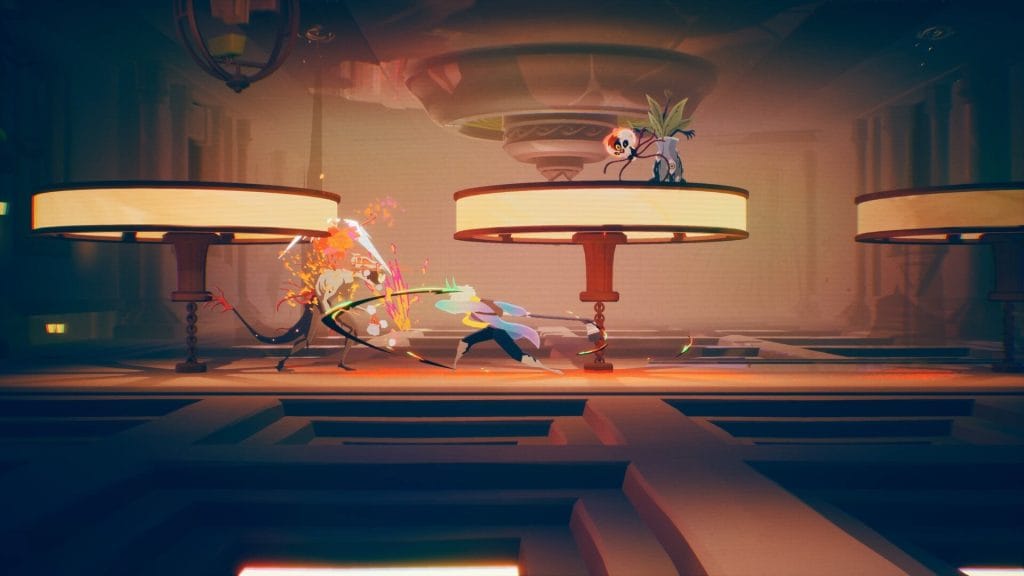
Cracking the Whip
At its core, Possessor(s) is a metroidvania game infused with the structure of a Souls game and the tempo of a platform fighter. Combat in Possessor(s) has a lot of ideas and inspirations, even if they don’t always mesh together well. It emphasizes control and improvisation: juggling enemies, knocking them into each other, and managing your “charges,” or stamina.
Luca fights using a mix of quirky melee weapons, including a hockey stick and a baseball bat, and up to three special weapons, like a computer mouse, a cell phone, sunglasses, and leather gloves. Using these special weapons, which range from allowing you to suplex demons to a wide-ranging electric shock attack, drains the charge meter. Charges refill as you pummel enemies with your makeshift weapons.
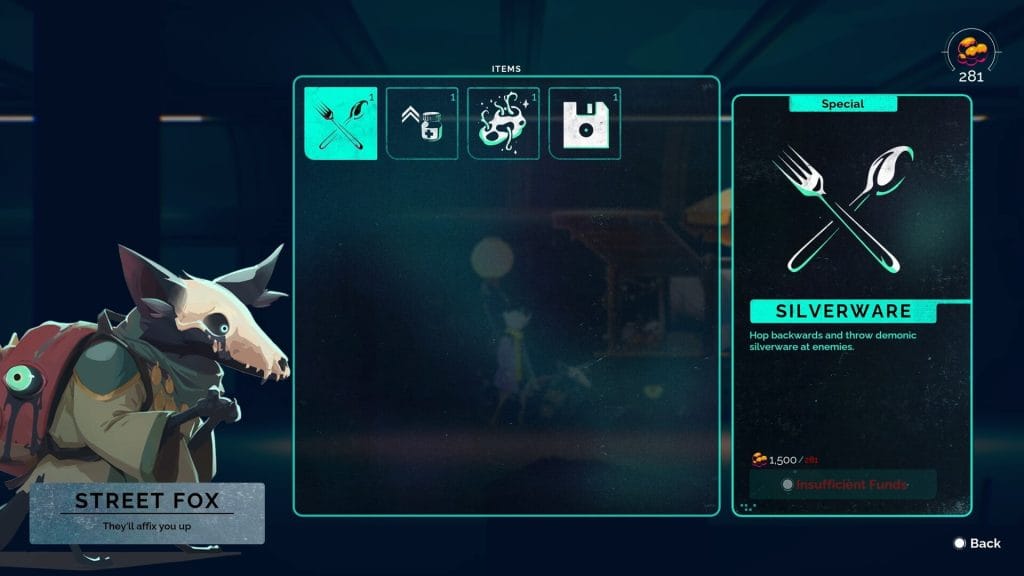
Every enemy hits hard and needs to be respected. Their odd, grotesque forms also make it difficult to predict how and when they’ll attack. Thankfully, Luca is also armed with a whip that doubles as both a grappling tool and a weapon, letting you pull enemies closer, pull yourself closer to them, or swing across chasms.
When [the whip] works, it’s fluid and fun — but when it doesn’t, it’s infuriating.
When it works, it’s fluid and fun — but when it doesn’t, it’s infuriating. The whip’s targeting is inconsistent, sometimes dropping you mid-swing or missing obvious anchor points. Combat as a whole can feel stiff and floaty, and the difficulty spikes are vicious. Big fights often devolve into chaos; I lost count of how many times I got trapped in a room full of monsters and fireballs, either dying constantly or barely surviving by abusing the game’s generous parry windows.
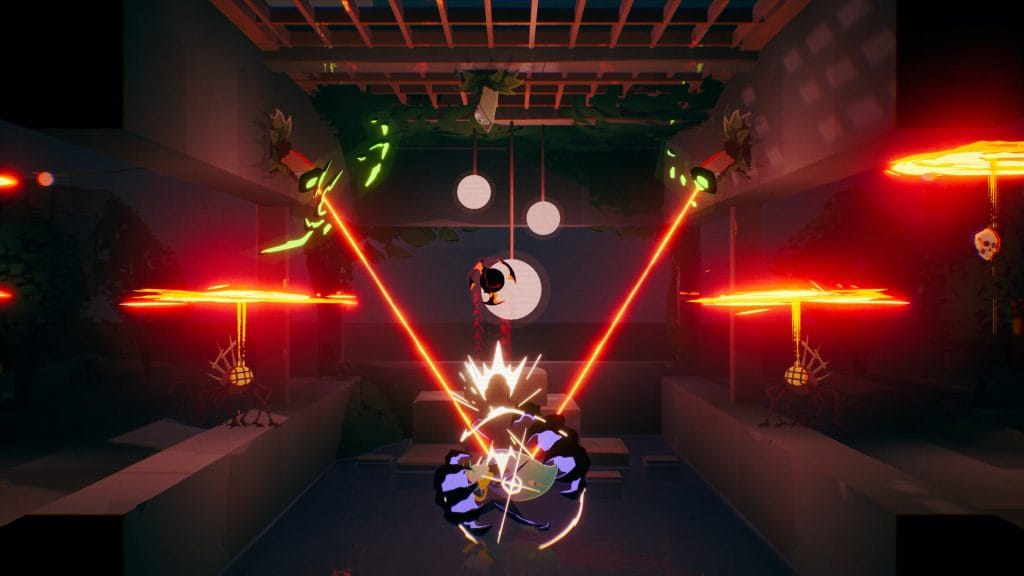
Fighting Through the Pain
Possessor(s)’ stumbles don’t stop there. The game’s enemy variety is decent, but repeated variants with slightly altered attacks can make things feel stale. Occasionally, you’ll find yourself locked in a room, forced to kill waves of these enemies to advance. The combination of enemies can feel unfair and imbalanced.
The game’s progression system is also wonky. By picking up various items while playing, you’ll slowly upgrade your health as well as your charges. However, it’s never clear how many items you need to reach an upgrade, or how to upgrade them. It’s a system that feels one or two steps away from brilliance.
Still, there’s potential here. Your weapons don’t get stronger in the traditional sense; instead, you can use your chroma to purchase extra slots for affixes — little upgrades made from weird items like eyeballs and lizard tails — that grant passive bonuses, such as faster movement, an additional charge, or regenerating health. The aforementioned parry system feels great when you nail it, and the game’s Souls-like mechanics (recovering dropped resources, respawning foes at save points, etc.) add a nice edge.
Once I swapped the starting house knives for a bat and started slotting the right affixes, fights felt sharper and much more strategic. With a few tweaks from Heart Machine, this could be a standout system in the genre. As is, you’ll have to fight past the rough edges to appreciate Possessor(s)’ potential.
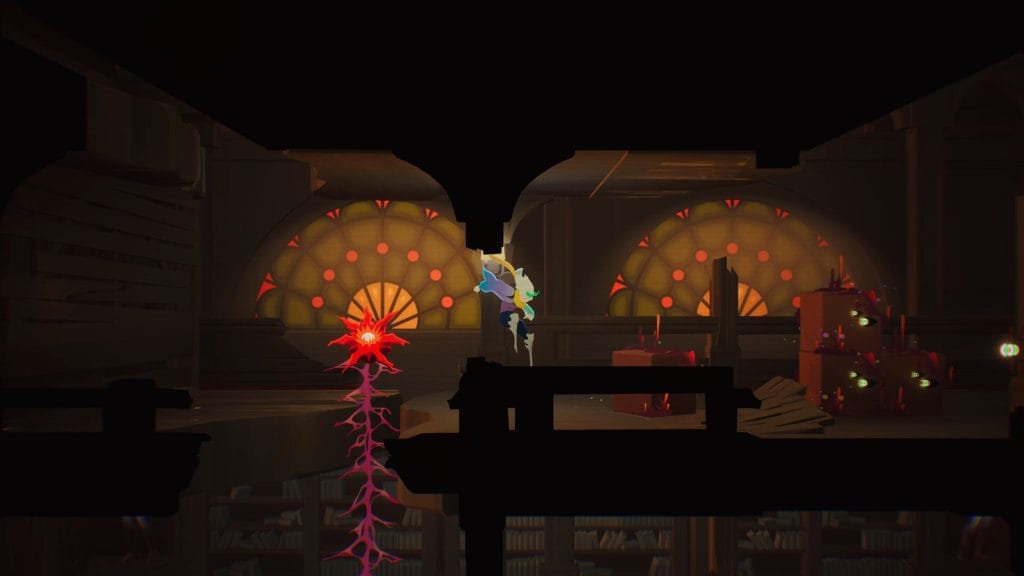
Lost in the Maze
If combat is flawed but enjoyable, exploration is where Possessor(s) truly tests your patience. The city is massive, layered, and gorgeous, painted in glowing purples and sickly greens. You’ll trek through malls, schools, parks, and skyscrapers — each filled with secrets and side stories that flesh out what happened before the disaster.
The map points you toward areas of interest without showing how to reach them. Progress often depends on finding a specific keycard or hidden passage buried beneath layers of backtracking. I spent hours wandering in circles, unsure of which locked door I’d missed. Even fast travel points, accessed through half-functioning subways, feel awkwardly placed.
Platforming suffers too, due to some nasty bugs. Ladders drop you at random while climbing, and your whip swings often misfire, resetting progress. It’s frustrating — the kind of friction that breaks immersion in an otherwise engrossing world. I spent too much time backtracking and plummeting to my death due to how janky these mechanics were.
I love when a metroidvania makes me feel clever for connecting the dots, but Possessor(s) too often left me feeling lost instead. It’s beautiful, but it’s convoluted in a way that kills momentum. Still, there’s a certain poetry in being lost here; the city’s emptiness mirrors Luca and Rhem’s confusion and grief, and their journeys to reconcile their pasts feels all the more meaningful for every dead end.
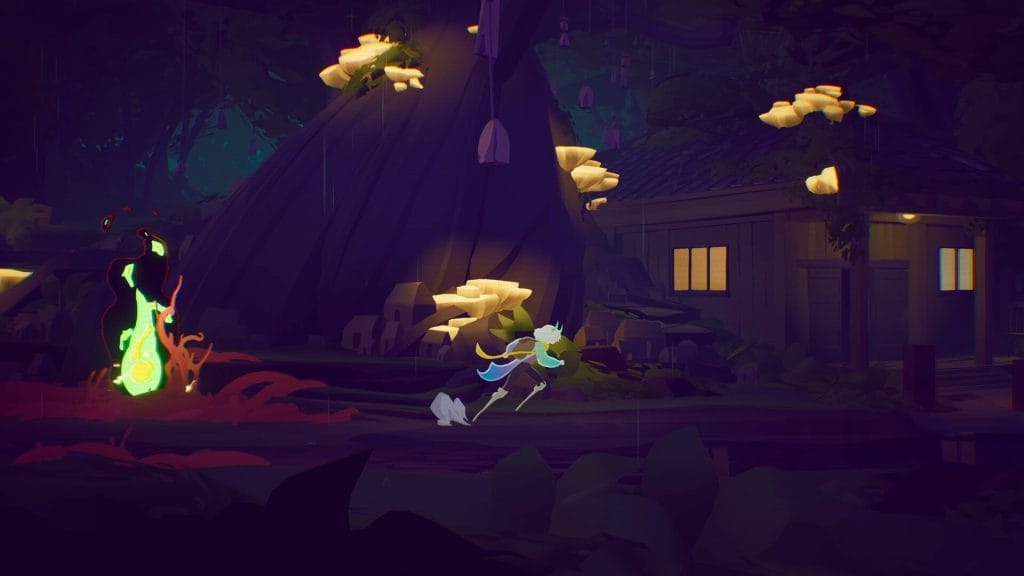
Beauty in Decay
Possessor(s)’ art direction is stunning. Dilapidated buildings overrun with vegetation, eerie terminals echoing past lives, and grotesque failed possessions populate a city that feels lived-in and mournful. Levels flow organically, each with distinct visual identity, and the vivid character sprites contrast beautifully with the dark, muted backgrounds.
The dynamic score ties it all together: somber pianos, airy synths, and occasional melancholic saxophones echo the city’s loneliness and the tension between Luca and Rhem. This is a world that looks and sounds alive, haunted, and heartbreakingly human.
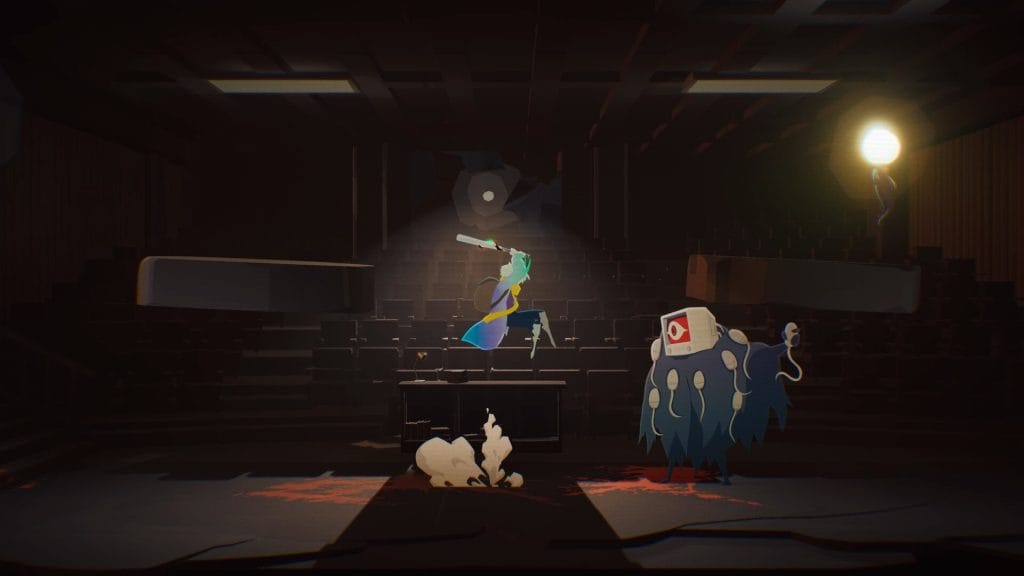
Final Thoughts: Fragile, Yet Beautiful
Possessor(s) is Heart Machine’s best work since Hyper Light Drifter — a flawed but powerful return to form. Even when the mechanics stumble, Possessor(s) never loses its emotional clarity. Luca and Rhem’s uneasy partnership — part survival pact, part emotional reckoning — drives everything. You feel their tension at every climb, every fight, every quiet exchange amid the ruins.
Some rough edges — clunky traversal, uneven combat, and convoluted navigation — hold it back from true greatness. But beneath the frustrations lies a beautiful, heartfelt tale that sticks with you. With a few changes, Possessor(s) could have easily stood as one of the best modern metroidvanias. As is, it’s a commendable game about survival, empathy, and the shared humanity of two broken souls.
Score: 8.0/10
Possessor(s), developed by Heart Machine and published by Devolver Digital, releases today, November 11, 2025, for PC (via Steam) and PlayStation 5. MSRP: $17.99. Version reviewed: PC.
Disclaimer: A review code was provided by the publisher.
Donovan is a lifelong gamer with a love for fast-paced, single-player action games—especially Devil May Cry, Metroidvanias, indies, and action RPGs. He’s also an “advanced scrub” at fighting games and will play just about anything fun. Donovan is passionate about seeing more diverse characters and creators in the industry—or at least better hair options for Black people. With over a decade in journalism, he joined The Punished Backlog in 2023 to write more about what he loves. Follow him on Twitter and Instagram @dono_harrell.


